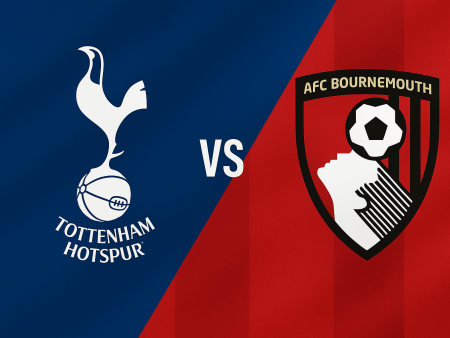Understanding Why Kids Quit Sports: Core Factors and Solutions
Participating in sports offers children a wide range of advantages-including enhanced physical fitness, social skills, emotional resilience, and the chance to build lasting friendships. Despite these benefits, a significant number of children stop engaging in sports at an early age. This article examines some of the most prominent and research-backed reasons why young athletes walk away from sporting activities, and explores how parents, coaches, and organizations can help reverse this trend.
The Decline of Enjoyment in Youth Sports
Having fun is often the primary motivator for children participating in sports. According to research by Visek and colleagues, 90% of young athletes cite fun as their top reason for playing. Despite this, around 70% of children withdraw from competitive sports by age 13. This highlights a disconnect between what keeps kids engaged and what environments are actually fostering.
One critical factor in diminishing enjoyment is the atmosphere shaped by adults. A "mastery motivational climate," where the focus is on learning, effort, and personal development, is proven to be more enjoyable than a performance-driven atmosphere that prioritizes winning and outcomes. Unfortunately, many parents and coaches emphasize results over experience, inadvertently placing pressure on young athletes and stripping away the joy of participation. Studies show that for children, winning ranks much lower as a reason for playing-indeed, it was the 48th most mentioned reason in one major survey.
Key strategies to sustain fun in sports include:
- Prioritizing skill development and teamwork over competition.
- Encouraging friendships and social interaction.
- Ensuring all children get the opportunity to play and contribute during games.
Ultimately, meaningful praise and constructive feedback-such as giving several positive comments for each critique-can make a significant difference in a child's enjoyment and willingness to continue.
The Impact of Parental Involvement on Sporting Experience
Parental involvement can have both positive and negative influences on a child's sport experience. While supportive parents boost confidence and enjoyment, overbearing or excessively vocal behaviors can induce anxiety and lead to withdrawal from sports.
Research suggests that a balanced approach, where parents are present and attentive without being domineering or overly critical, is most beneficial for young athletes. In fact, children perceive parents who are quietly supportive as more encouraging than those who frequently shout instructions or express disapproval from the sidelines.
Negative parental behaviors observed in youth sports environments include:
- Arguing with referees and coaches.
- Placing undue emphasis on winning.
- Criticizing children or their teammates during and after games.
These actions can reduce a child's enjoyment and increase the likelihood of them quitting. Some organizations have responded by introducing initiatives such as "silent sidelines" and parent-free zones, aiming to create a more positive space for young athletes to thrive.
Tips for parents to support their children positively in sports:
- Attend games and cheer for all players.
- Focus on effort and improvement rather than the score.
- Allow children to make their own decisions regarding their sports participation.
- Channel enthusiasm into encouragement rather than criticism.
The Role of Coaches in Player Retention and Enjoyment
Coaches are instrumental in shaping young athletes' perceptions and overall sporting experiences. Unfortunately, some coaches lose sight of their fundamental role-to nurture a love for the game and promote lifelong participation.
Effective coaches consistently prioritize enjoyment, learning, and personal growth over solely winning or excelling at all costs. On the other hand, negative coaching behaviors-such as berating players for mistakes, arguing with officials, or focusing only on results-can significantly diminish a child's willingness to stay involved in sports.
A common issue in youth sports is uneven playing time, with some children sitting on the sidelines in pursuit of team victory. Research indicates the vast majority of young athletes would prefer to play on a losing team than sit out on a winning one. Equal participation is therefore crucial for fostering positive self-esteem and continued engagement.
Principles for positive coaching include:
- Promoting an inclusive, supportive team culture.
- Offering constructive, balanced feedback.
- Ensuring all players have meaningful opportunities to participate.
- Serving as a positive role model in behavior and attitude.
Youth sports organizations should provide ongoing training for coaches and set clear expectations for conduct. Helping coaches understand the developmental needs of children can dramatically improve both the retention and long-term enjoyment of young athletes.
Conclusion: Building a Positive Future for Youth Sports
Sustaining lifelong involvement in sports depends heavily on the experiences children have during their formative years. When fun, encouragement, and opportunity are at the center of the sporting environment, kids are more likely to continue and benefit from everything sports have to offer. Parents, coaches, and organizations each play vital roles in creating positive and inclusive atmospheres. By prioritizing enjoyment and growth above all else, the trend of early dropout rates among young athletes can be reversed.
References
Abrams, D. (2002). The Challenge Facing Parents and Coaches in Youth Sports: Assuring Children Have Fun And Equal Opportunity. Villanova Sports & Entertainment Law Journal, 8, 253-270.
Atkins, M., Johnson, D., Force, E., & Petrie, T. (2013). “Do I Still Want to Play?” Parents’ and Peers’ Influences on Girls’ Continuation in Sport. Journal of Sport Behaviour.
Bach, G. (2006). The Parents Association for Youth Sports A Proactive Method of Spectator Behavior Management. Retrieved November 7, 2018.
Christofferson, J., & Strand, B. (2016). Mandatory Parent Education Programs Can Create Positive Youth Experiences. Strategies: A Journal for Physical and Sport Educators, 29(6), 8-14.
Crocker, P. (2016). Sport and Exercise Psychology. Toronto: Pearson Canada.
Fredricks, J., & Eccles, J. (2007). Parental Influences on Youth Involvement in Sports. Developmental Sport and Exercise Psychology: A Lifespan Perspective, 145-160.
Knight, C. J., Boden, C. M., & Holt, N. L. (2010). Junior Tennis Players’ Preferences for Parental Behaviors. Journal of Applied Sport Psychology, 22(4), 377-391.
Omli, J., & Wiese-Bjornstal, D. (2011). Kids speak: Preferred parental behavior at youth sporting events. Research Quarterly for Exercise and Sport, 82(4), 702-711.
Omli, J., LaVoi, N. M., & Wiese-Bjornstal, D. M. (2008). Towards an understanding of parent spectator behavior at youth sport events. The Journal of Youth Sports, 3(2), 30-33.
Visek, A. J., Achrati, S. M., Mannix, H. M., Mcdonnell, K., Harris, B. S., & Dipietro, L. (2015). The Fun Integration Theory: Toward Sustaining Children and Adolescents Sport Participation. JPAH Journal of Physical Activity and Health, 12(3), 424-433.
Why Kids Quit Sports | Changing the Game Project. (2015, May 06). Retrieved March 04, 2016.













